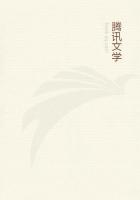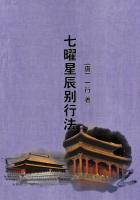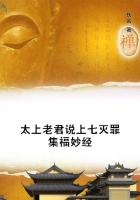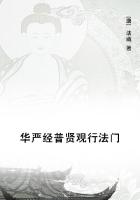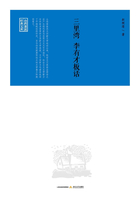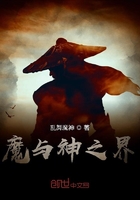Omne bene Sine poena Tempus est ludendi;Venit hora, Absque mora Libros deponendi.
--Old Holiday School Song.
In the preceding paper I have made some general observations on the Christmas festivities of England, and am tempted to illustrate them by some anecdotes of a Christmas passed in the country; in perusing which, I would most courteously invite my reader to lay aside the austerity of wisdom, and to put on that genuine holiday spirit which is tolerant of folly, and anxious only for amusement.
In the course of a December tour in Yorkshire, I rode for a long distance in one of the public coaches, on the day preceding Christmas. The coach was crowded, both inside and out, with passengers, who, by their talk, seemed principally bound to the mansions of relations or friends to eat the Christmas dinner. It was loaded also with hampers of game, and baskets and boxes of delicacies; and hares hung dangling their long ears about the coachman's box,--presents from distant friends for the impending feast. I had three fine rosy-cheeked schoolboys for my fellow passengers inside, full of the buxom health and manly spirit which I have observed in the children of this country. They were returning home for the holidays in high glee, and promising themselves a world of enjoyment. It was delightful to hear the gigantic plans of pleasure of the little rogues, and the impracticable feats they were to perform during their six weeks'
emancipation from the abhorred thraldom of book, birch, and pedagogue. They were full of anticipations of the meeting with the family and household, down to the very cat and dog; and of the joy they were to give their little sisters by the presents with which their pockets were crammed; but the meeting to which they seemed to look forward with the greatest impatience was with Bantam, which Ifound to be a pony, and, according to their talk, possessed of more virtues than any steed since the days of Bucephalus. How he could trot! how he could run! and then such leaps as he would take--there was not a hedge in the whole country that he could not clear.
They were under the particular guardianship of the coachman, to whom, whenever an opportunity presented, they addressed a host of questions, and pronounced him one of the best fellows in the whole world. Indeed, I could not but notice the more than ordinary air of bustle and importance of the coachman, who wore his hat a little on one side, and had a large bunch of Christmas greens stuck in the button-hole of his coat. He is always a personage full of mighty care and business, but he is particularly so during this season, having so many commissions to execute in consequence of the great interchange of presents.
And here, perhaps, it may not be unacceptable to my untravelled readers to have a sketch that may serve as a general representation of this very numerous and important class of functionaries who have a dress, a manner, a language, an air, peculiar to themselves, and prevalent throughout the fraternity; so that, wherever an English stage-coachman may be seen, he cannot be mistaken for one of any other craft or mystery.
He has commonly a broad, full face, curiously mottled with red, as if the blood had been forced by hard feeding into every vessel of the skin; he is swelled into jolly dimensions by frequent potations of malt liquors, and his bulk is still further increased by a multiplicity of coats, in which he is buried like a cauliflower, the upper one reaching to his heels. He wears a broad-brimmed, low-crowned hat; a huge roll of coloured handkerchief about his neck, knowingly knotted and tucked in at the bosom; and has in summer-time a large bouquet of flowers in his buttonhole; the present, most probably, of some enamoured country lass. His waistcoat is commonly of some bright colour, striped; and his small-clothes extend far below the knees, to meet a pair of jockey boots which reach about half-way up his legs.
All this costume is maintained with much precision; he has a pride in having his clothes of excellent materials; and, notwithstanding the seeming grossness of his appearance, there is still discernible that neatness and propriety of person which is almost inherent in an Englishman. He enjoys great consequence and consideration along the road; has frequent conferences with the village housewives, who look upon him as a man of great trust and dependence; and he seems to have a good understanding with every bright-eyed country lass.
The moment he arrives where the horses are to be changed, he throws down the reins with something of an air, and abandons the cattle to the care of the hostler; his duty being merely to drive from one stage to another.
When off the box, his hands are thrust in the pockets of his greatcoat, and he rolls about the inn-yard with an air of the most absolute lordliness. Here he is generally surrounded by an admiring throng of hostlers, stable-boys, shoe-blacks, and those nameless hangers-on that infest inns and taverns, and run errands, and do all kinds of odd jobs, for the privilege of battening on the drippings of the kitchen and the leakage of the tap-room. These all look up to him as to an oracle; treasure up his cant phrases;echo his opinions about horses and other topics of jockey lore;and, above all, endeavour to imitate his air and carriage. Every ragamuffin that has a coat to his back thrusts his hands in the pockets, rolls in his gait, talks slang, and is an embryo Coachey.
Perhaps it might be owing to the pleasing serenity that reigned in my own mind, that I fancied I saw cheerfulness in every countenance throughout the journey. A stage-coach, however, carries animation always with it, and puts the world in motion as it whirls along.

